Donald Trump may not have realized he was starting a new fashion trend the first time he wore his “Make America Great Again” hat to a campaign event, but the $25 caps are flying off store shelves, and have become a must-have accessory for watchers of the 2016 presidential race.

The business mogul has since trademarked the slogan, as his online campaign store grows into a virtual smorgasbord of merchandise emblazoned with the catch-phrase.
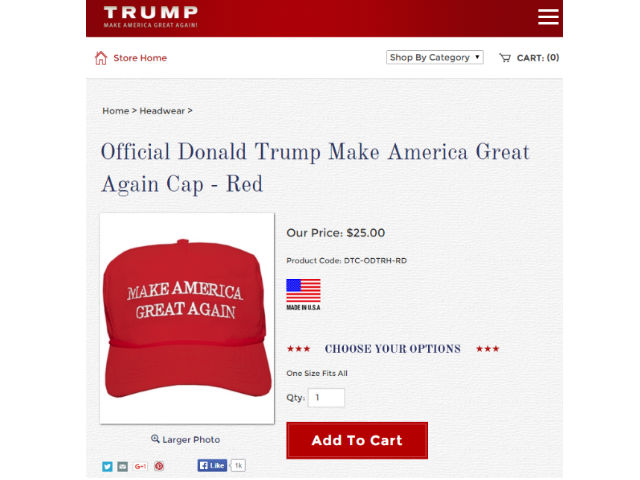
Not to be outdone, Hillary Clinton’s campaign has offered up its own product line. Everything from $55 “A Woman’s Place is in The White House” throw pillows, to “Chillary Clinton” beer koozies with a frozen “H” logo on the side.
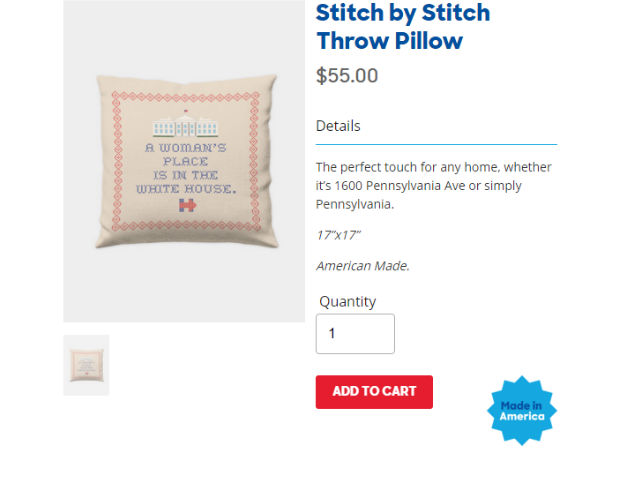
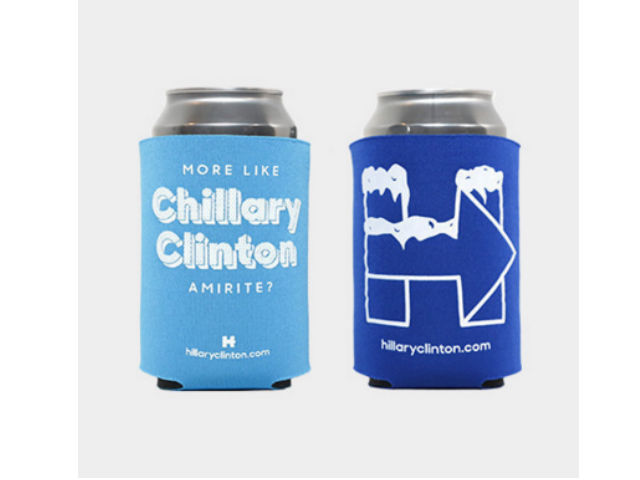
In the U.S. presidential race, merchandise has become king. It’s an effective marketing tool and a way to show support for a candidate. Buyers may not realize it’s also an easy way for political campaigns to raise money.

Get breaking National news
Buried in the fine print of online campaign web stores, is a warning that any purchase is considered a campaign donation. That’s where things get tricky for Canadians and other foreigners looking to snap up, say, a Marco Rubio “Marco Polo” shirt or a Ted Cruz “right turns only” bumper sticker.
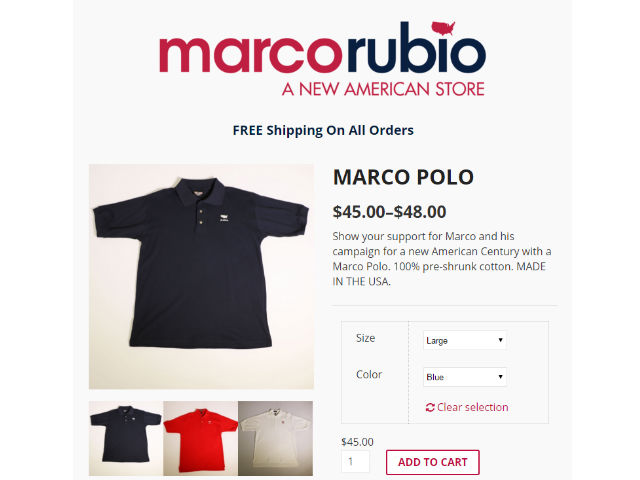

Under rules set out by the Federal Election Commission (FEC), political merchandise is considered a “fundraising item.” The FEC makes it clear “if a contributor spends $20 to buy a campaign T-shirt that cost the campaign $5, the contributor has made a $20 contribution.”
The problem for non-U.S. citizens is that American law clearly prohibits campaign contributions by foreigners.
Under the Frequently Asked Questions section of Hillary Clinton’s website, there’s a warning that “sales are restricted to American citizens” and “orders placed by non-American citizens will be cancelled and refunded.” The only exception is for permanent U.S. residents who hold a green card.
The restrictions don’t stop there: It’s also against the law for foreigners to give money to an American friend or relative to purchase merchandise on their behalf. FEC rules prohibit U.S. citizens from “acting as a conduit or intermediary for foreign national contributions and donations.”
If all of that sounds incredibly strict for a few T-shirts and coffee mugs, consider how much money is potentially at stake. A recent report by the National Journal found Donald Trump’s campaign received donations from 71,727 individual donors in the third quarter, with an average contribution of $38.72. That means the average donation is roughly the cost of a T-shirt or hat.
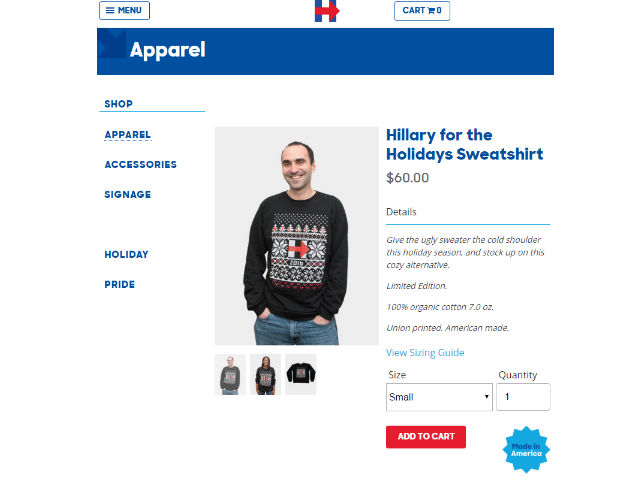
In other words, it seems more than likely that a good chunk of the $2.8 million in “small individual contributions” reported so far by Trump’s campaign, could have come from merchandise sales.
Despite the onerous restrictions, Canadians need not lose hope of ever owning a piece of political history. With the holidays right around the corner, there’s nothing to stop Americans from giving merchandise to foreigners as a gift. There’s also plenty of unofficial campaign paraphernalia for sale by third party retailers, which is perfectly legal for Canadians to buy.


Comments